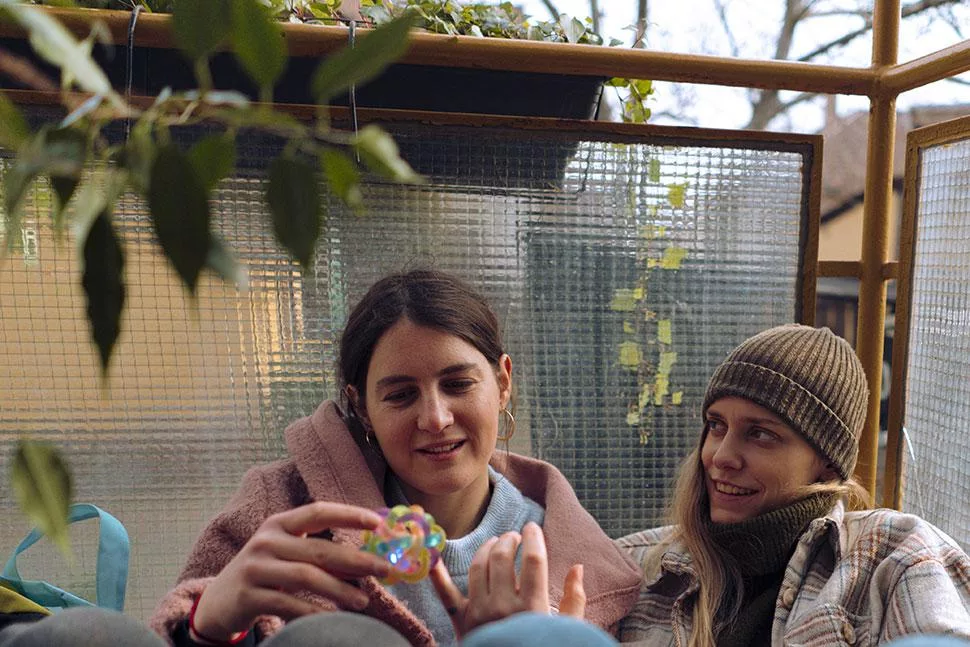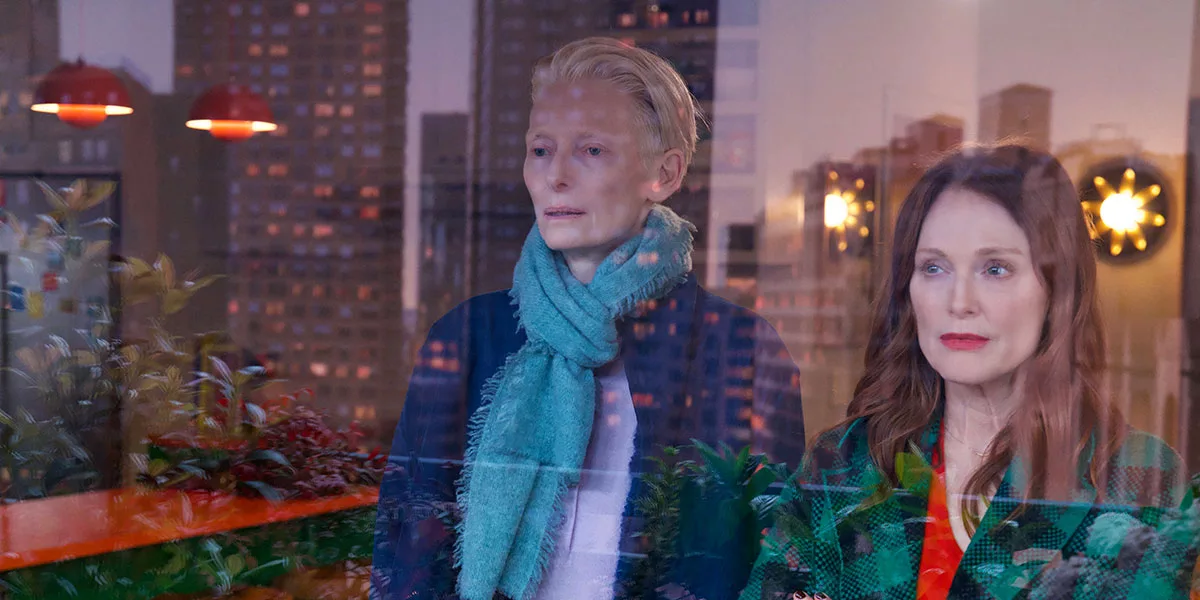It was in 2015 that I received my first invitation to the Venice Film Festival from Peter Cowie, the venerable scholar and critic. His new book, “God and the Devil: The Life And Work of Ingmar Bergman,” is a crowning achievement in Bergman studies, a highlight from a master who hasn’t lost a step over his half-century career. It felt like a fortuitous invitation; my mother, who had always wished for me a trip to Italy, died earlier that year. The 2015 Biennale was my first time out, and I felt her presence over my shoulder as I took in the wonders of Venice.
And I’ve been coming back ever since, not counting, of course, the COVID Break Year of 2020. My mission, along with a stellar cadre of fellow critics—the Chicago Tribune’s Michael Philips, Time Magazine’s Stephanie Zacharek, protean arts maven Chris Vognar, whose work appears in the Los Angeles Times, The New York Times, and a lot of papers in his native Texas, Finnish critic Sara Ehnholm Hielm, as well as the overseer of the program, Savina Neirotti—is to assess the films sponsored by the Biennale College and if possible counsel its filmmakers. This year the festival produced four pictures to the tune of 200,000 Euros a pop (in the beginning it was 150,000; the times do change).
The selection committee goes through well over one thousand proposals, and picks three or four of the ones it considers most worthy; the director and producer then come out here to workshop, and ten months after that, they deliver finished features using Biennale funds only. Over the years, there has been solid work and there’s also been stunning work—see Lemohang Jeremiah Mosese’s “This Is Not A Burial, It’s A Resurrection,” which roiled the art film world to the extent it was eventually given a Criterion Collection home video release. Another College film that made a big impression on me was Ricky D’Angelo’s “The Cathedral;” the filmmaker is here this year, on a jury, and over coffee earlier today he told me a bit about his next project, which sounds exciting indeed. Today was the panel, and now I can tell you about what I saw.
Watching the movies sponsored by the Biennale College this year for the Venice Film Festival, I had a rather disquieting initial thought: Has the College developed a “house style?” With one exception, these were somber, realistic linear dramas. (Among other things, Mosese’s and D’Ambrose’s films—not to mention Anna Rose Holmer’s exemplary 2015 entry “The Fits”—are works of considerable formal daring.) But this was based on a superficial reading, I’m afraid. What three of the four films do with varying degrees of urgency is address human, social, and political trauma in specific places, and in a specific time, that being NOW.
“Medovyi Misiats,” or “Honeymoon,” directed by Zhanna Ozirna and produced by Dmytro Sukhanov, is from Ukraine, and begins with what looks like a just-married couple taping off a room in an apartment for the purposes of painting. And they are. And they’re starting as war is encroaching. Will they have to move? That’s merely the first question they face. This is a bracing portrait of how war can be experienced by many today: from a window, in a place whose livability could expire at any moment. The movie has good energy, some erotic currents—rare in College movies, and resourceful filmmaking. Chris compared it to Bergman’s “Shame,” and it’s an apt comparison. But this movie is more directly here-and-now than existential allegorical. But it has its moments of the latter, to be sure. The sound of missiles, the couples’ vulnerability as they go to the window naked. The perspectives are purposefully claustrophobic, but nicely varied. A real achievement.

We don’t understand the significance of the title “January 2,” a Hungarian film from director Zsófia Szilágyi and producer Dóra Csernátony, until the very end, but we suspect the thing the film’s temporal punchline will deliver, which is a gut punch of the personal meeting the political. My favorite thing in the picture is a terrific performance by lead actress Csenge Jóvári.
U.S.-based director Zoey Martinson teamed with producer Kofi Owusu Afriyie to go back to Ghana, where she spent much of her childhood, to make the sole comedy of the group, “The Fisherman.” The movie has a lovely musical opening, a song played on thumb piano and sung by someone with a voice rather like that of Nick Drake. “Land was lonely because all the creatures lived in the sea,” a song tells us. The comic parable of an old fisherman who believes he’s in possession of a talking catch indirectly references the pollution that’s making life even more of a challenge for small-business seafarers like our title character. The movie also expressed great love for the sea as the mother of all things. The title character is often seen giving Tevye—he believes in tradition, and he wants respect. And of course, he’s incapable of facing his own obsolescence. In addition, the movie has some first-rate snappy dialogue, my favorite line being, “You are choking me like a Popeye’s biscuit with no jam.”
The Italian fourth entry was “My Birthday,” directed by Christian Filippi and produced by Leonardo Baraldi. It begins with an unraveled teen threatening to jump from a roof and then explores his condition further. It’s an intense, sometimes stressful, chronicle of family dysfunction. The panel was constructive and fun, with some meaningful back-and-forth between critics, filmmakers, and the appreciative audience. Thanks to them all.

Tying up festival loose ends: I was impressed with Pedro Almodóvar’s “The Room Next Door,” starring Tilda Swinton and Julianne Moore. It’s Almodóvar’s first English language feature (it was preceded by the short “The Human Voice,” a sublime Cocteau adaptation also starring Swinton), and it’s an unusually somber picture for him—perhaps a consciously late work. Swinton and Moore play longtime friends, both successful writers—Moore’s character has just published a book on death, while Swinton’s is negotiating with an imminent end, from cancer. The push and pull of their affection for and exasperation with each other (well the exasperation is mostly from Moore’s end) makes for a compelling exchange plumbing the intimate realms of mortality and morality without ever getting pedantic.
James Badge Dale gives perhaps a breakout turn as a dedicated drug cop in John Swab’s brutal “King Ivory,” which could rock the alternate title “Traffic 24 Years Later.” But acting-wise, this treatise on the United States of Fentanyl is ultimately owned by Richie Coster, whose portrayal of doomed drug runner “Mickey The Hoop” instantly enters the pantheon of Movies Worms. The character is all bluster and tics, and once he starts to lose it you sense he may dissipate before your eyes, molecule by molecule. Harrowing stuff.
The combination of Daniel Craig and William S. Burroughs was/is scintillating enough to make me almost forget that the director putting them together is Luca Guadagnino. His screenwriter here is Justin “Potion Seller” Kuritzkes, who also penned the risible “Challengers” for L.G. I won’t quite say that “Queer” deprived me of the will to live, but it did make me that much more determined to take in a restoration of Rouben Mamoulian’s magnificent 1940 “Blood and Sand,” so I could depart from the festival on a high note. It was unseasonably hot and humid on the Lido this year, but the festival is so well-run—with one exception, every screening started more or less exactly on time—and staffed by such lovely people that your comfort level was never in too much trouble for too long. So again I give thanks. Ciao!

